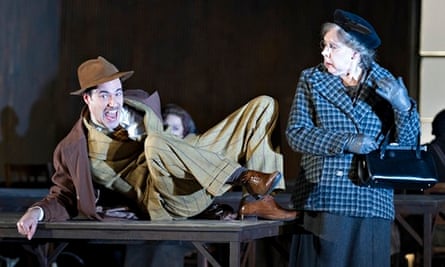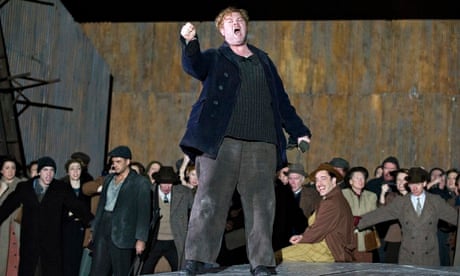English National Opera's revival of David Alden's production of Peter Grimes opened a week after the announcement that its conductor, Edward Gardner, would be standing down as the company's music director at the end of the 2014-15 season. Both in 2009 when it was new, and 2012 when it was given at the Proms, Gardner's Grimes was considered one of his and ENO's most significant achievements, and it remains exceptional, despite the controversies that surround Alden's staging.
Updating Britten's opera to the time of its premiere in 1945, Alden forcefully depicts postwar Britain as a parochial, reactionary hell-hole, where moral and sexual hypocrisy are rampant. Mindful that the score owes a debt to Austro-German expressionism, Alden also alludes to the Weimar Republic as emblematic of a comparable society searching for a scapegoat in the form of a perceived enemy within. It is immensely powerful, though there are occasional slips. The multi-sexual shenanigans at the Moot Hall dance strike a false note in the context of 1940s Britain. And until we get to the final scenes, the dominant impression is one of claustrophobia, which sits uneasily with an opera that ultimately deals with existential isolation in vast open spaces.

Stuart Skelton plays Grimes as a naïve visionary, painfully unaware of both his capacity for anger and his physical strength. The death of his apprentice is very much an accident, but he is tellingly capable of violence towards both Elza van den Heever's lonely Ellen and Iain Paterson's war-wounded Balstrode. Among the malign denizens of the Borough, Leigh Melrose's pill-popping Ned Keane and Rebecca de Pont Davis's androgynous Auntie are particularly outstanding. Ultimately, however, it's Gardner who pulls all the threads together in conducting that is effortlessly vital, marvellously lyrical and searingly intense. Overwhelming, despite its occasional flaws.

Comments (…)
Sign in or create your Guardian account to join the discussion